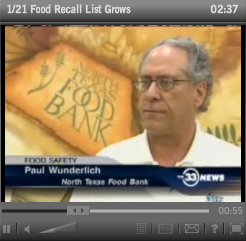 [picture: Norman Rockwell's "Freedom from Want"]
[picture: Norman Rockwell's "Freedom from Want"]Tomorrow, as Texans sit down to a delicious meal of turkey and trimmings, many of us will feel a familiar pang in our stomachs: guilt. Yes, there's nothing like a bountiful meal with loved ones to remind us not just how blessed we are, but how many go without.
On cue, a chorus of news media and state statistics converge to validate that gnawing feeling. Last week, the USDA revealed that more Americans are struggling with hunger than at any point since the government started measuring the problem. Even worse, we learned that Texas is now the second hungriest state, right after beleaguered, swampy Mississippi.
As if the holidays weren't stressful enough.
Faced with a pile of steaming mashed potatoes, saucy gravy and succulent bird, we find ourselves in a true ethical dilemma. What can be done about such a big problem?
Many consider volunteering at local soup line. After all, there's no greater reward than physically handing food to someone in need, and President Obama recommends it. But while food banks, soup kitchens and food pantries need volunteers all year long, at this time of year you'll probably have to take a number. Can you end hunger just by taking someone else's slot?
Fortunately, there are a number of things your family can do - right now, or even at tomorrow's dinner table:
- Contact your local legislators. Sound daunting? It's not. Simply click here to sign a letter asking your state legislator to make hunger a priority in Texas. Better yet, have every one at your table sign one. This one act may make more of a difference than a week of volunteering.
- Donate to your local food bank. Got cans? Great. Got cash? Better. Although nothing beats the warm feeling of collecting cans for the hungry, in reality your local food bank can do a lot more with your dollar.
- Join the movement. If you believe that hunger is unacceptable in a state as great as Texas, then sign up for Feeding America's Hunger Action Center. You'll learn a lot about the problem, and get a very occasional email asking you to lend your voice to the cause.
Hunger truly is a massive problem in Texas, and ending it will require a massive, joint response from individuals, businesses and public institutions - but you've just taken your first step.
Enjoy your turkey.







































